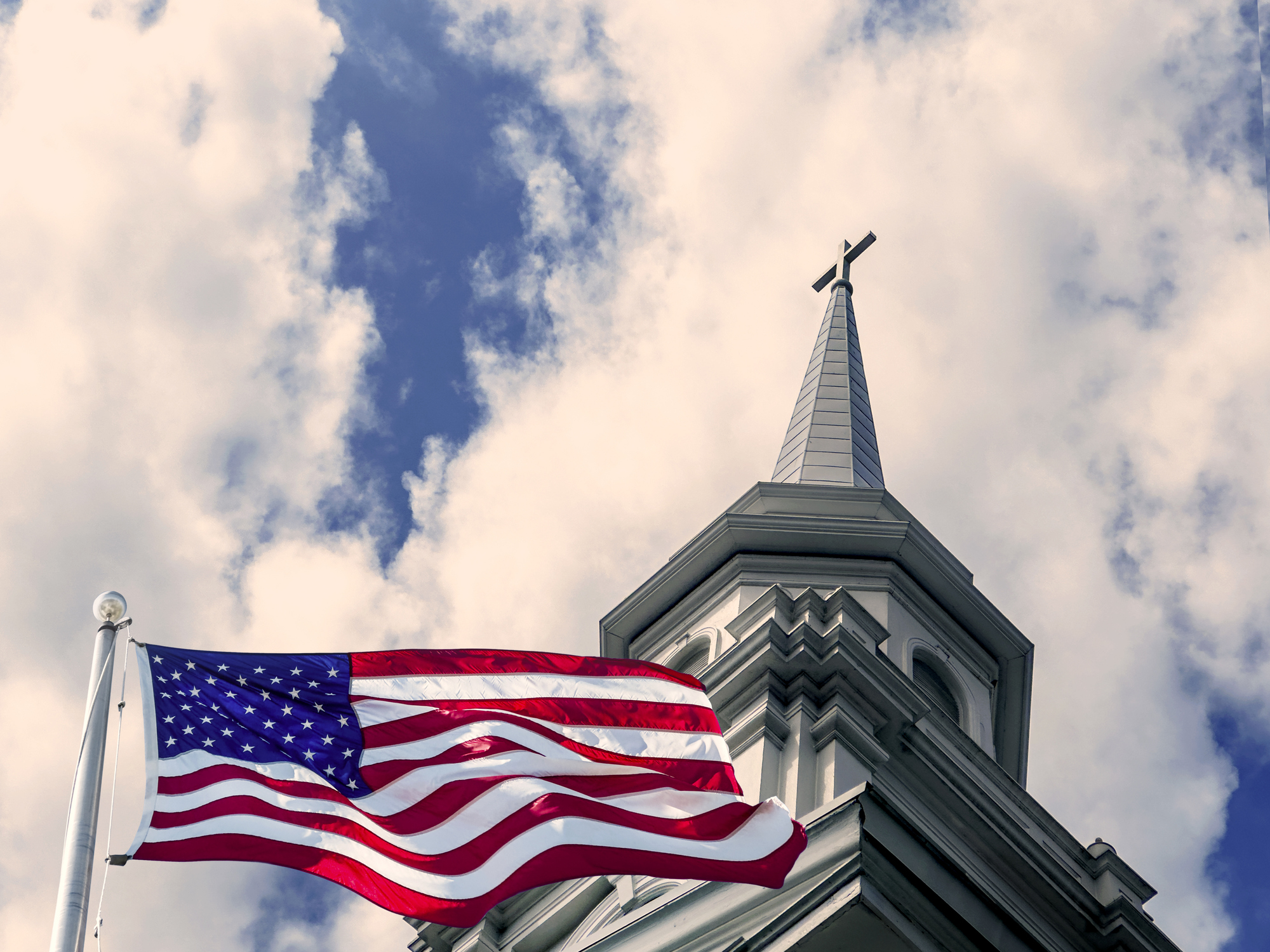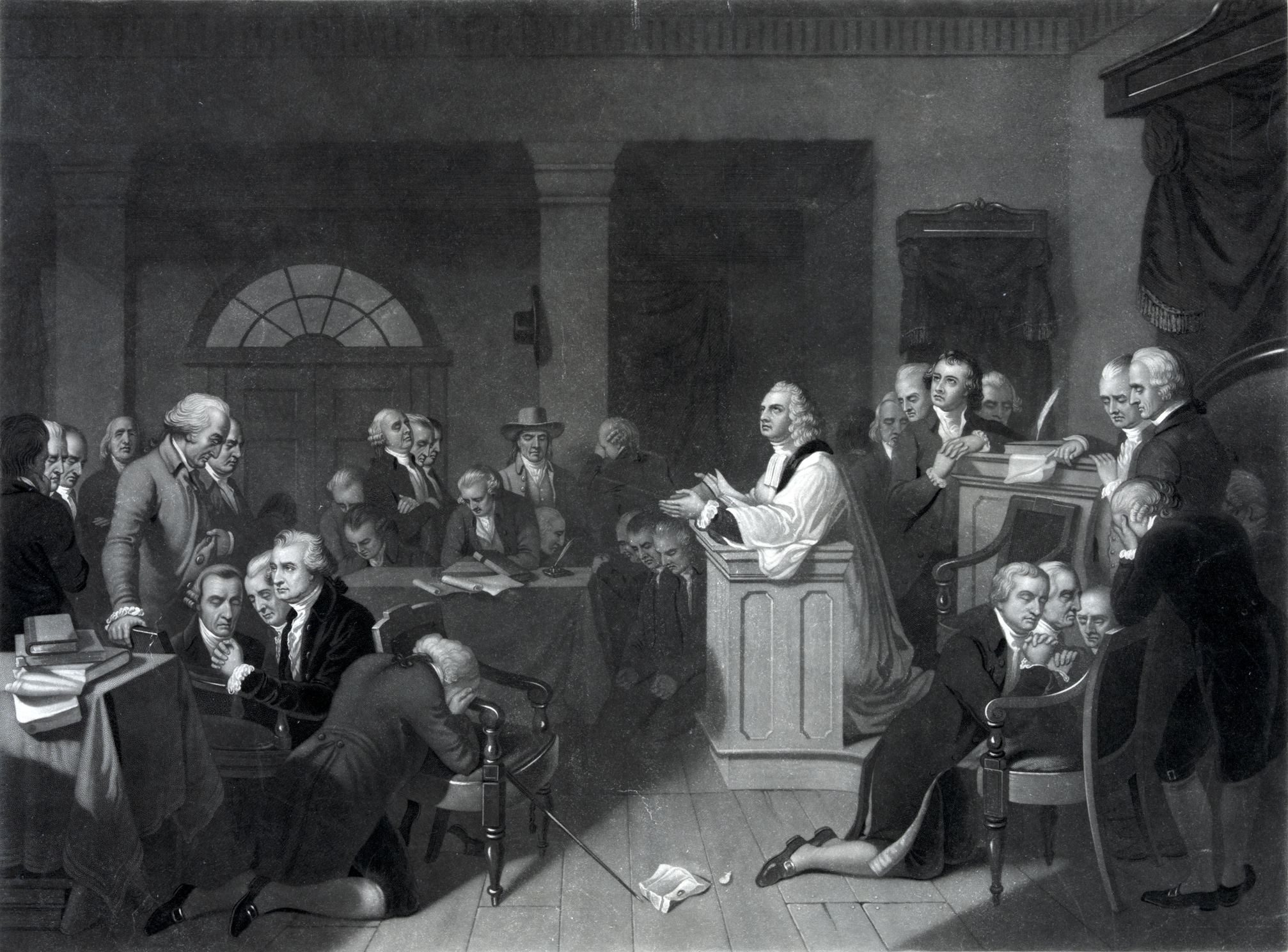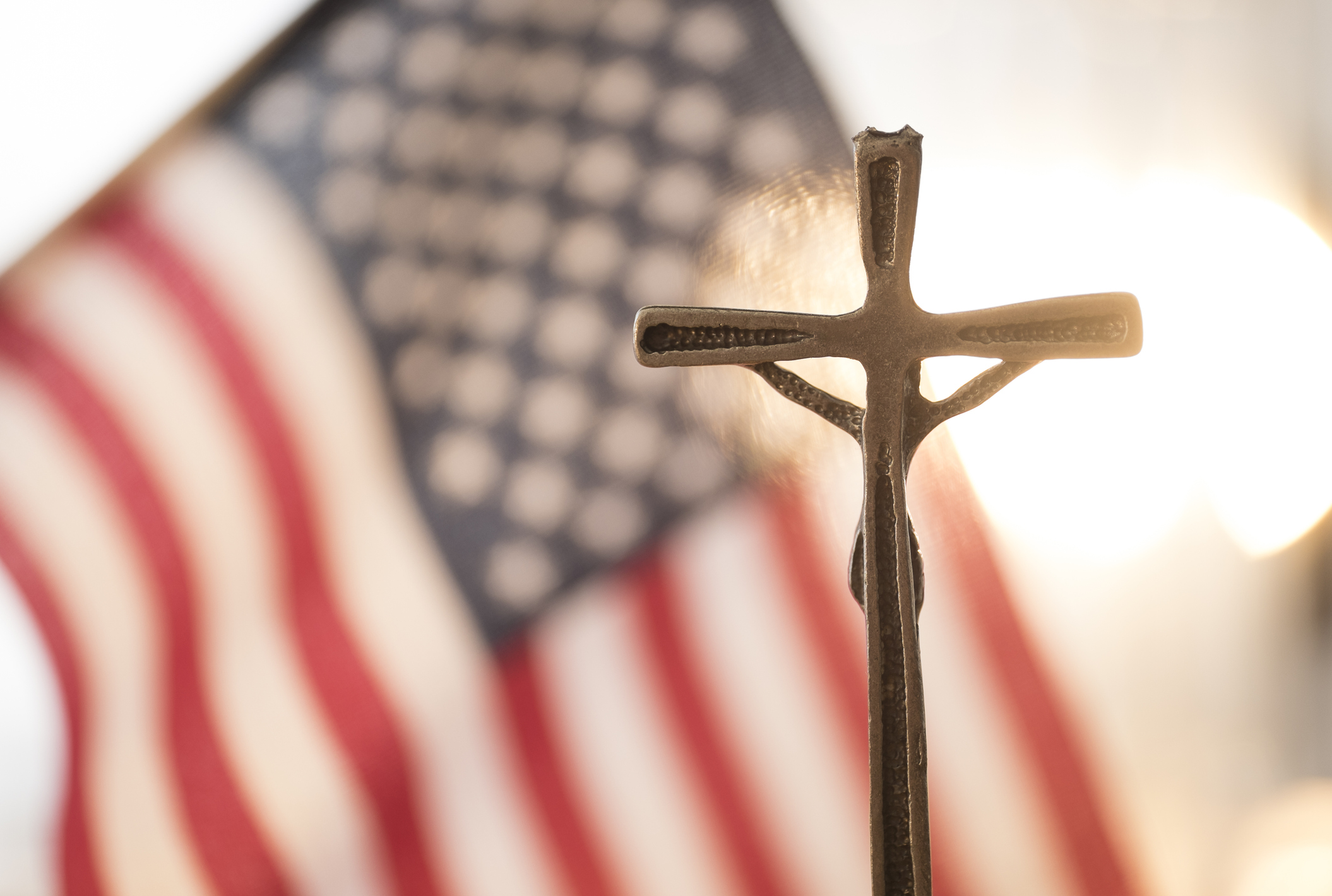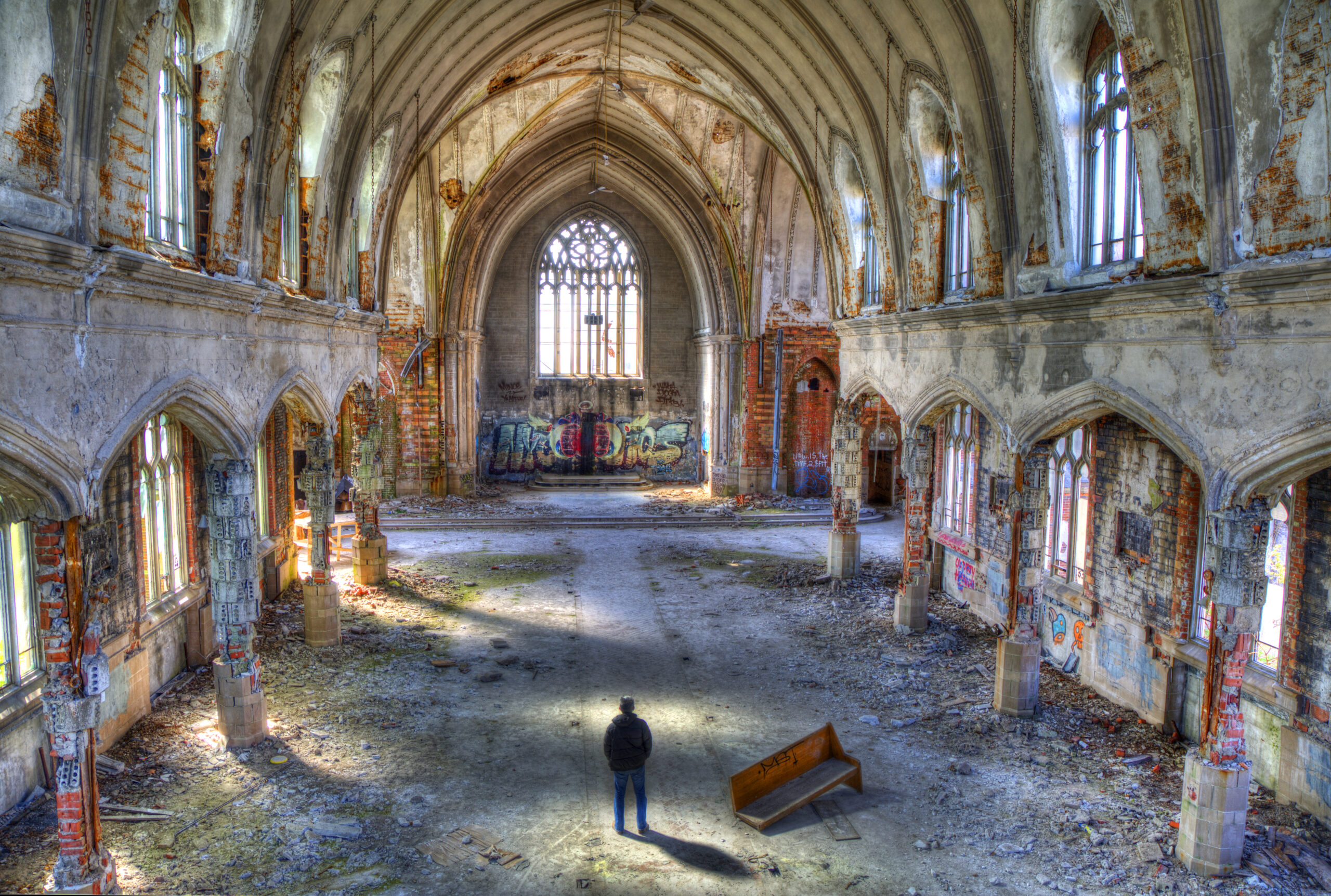Christians need to find the will to act.
Against Based Theology

It takes more than online wishcasting to win elections.
I read with interest Mike Sabo’s effort to recommend Christian nationalism to readers of The American Mind. Sabo lays out the case well. Christian nationalists are primarily Protestants, and they are dedicated to the proposition that a Christian ethos must be foundational for American political institutions. According to Sabo, the reigning liberal establishment has forced out such an ethos in favor of their own humanitarian ideology.
Initially it is hard to see how the restoration of a public Protestant Christianity might matter to West Coast Straussians, as their project has no confessional mission. However, the Claremont mission entails restoring American greatness, and Sabo argues that this greatness depended on a widely held commitment to Protestant Christianity. Therefore, Claremonsters are invited through Sabo’s essay to consider whether to make American great again, one must make America a Protestant Christian nation again. Sabo outlines both why this is not immediately possible, and how it can be made possible. Before addressing both these points of his argument, let me offer some background.
“Christian nationalism” began in the 2000s as a term progressives attributed to primarily evangelical Protestants who formed a large, influential constituency during the presidency of George W. Bush. Sabo mentions Michelle Goldberg’s sensationalist book Kingdom Coming: The Rise of Christian Nationalism as the starting point, since she popularized the term. Goldberg’s is the rare book that can be judged entirely by its cover, which features a photo of a group of evangelical Protestants with their hands up during a worship service but shot at an angle to make them look like a zombie horde. The book is this picture put into tens of thousands of words. Goldberg’s task was to discredit evangelical Protestants and to scare progressives into acting against evangelical political efforts in opposition to same-sex marriage and legal abortion.
For over a decade, Protestant Christians had no use for the term “Christian nationalism.” By their own account they were simply engaging in ordinary political activity inspired by their faith, and their views required the same representation in the political system as any others. Their political activity bore fruit, as states passed constitutional amendments that affirmed traditional marriage. However, those were dashed in the 2015 Supreme Court decision Obergefell v. Hodges. Some Protestant Christians concluded from this outcome that the system was rigged because the progressive legal establishment held a veto power over successful Christian participation in republican government.
The surprise election of Donald J. Trump in 2016 showed another way. He swept away the 2012 Obama HHS contraception mandate and appointed to the Supreme Court justices who would eventually overturn Roe v. Wade in the 2022 decision Dobbs v. Jackson Women’s Health Organization. While Trump was not exactly a practicing Christian, his successes against progressivism moved “Christian Nationalism” from something progressives attributed to Protestant Christian politics to one that at least some Protestant Christians decided to claim.
Spectral Matriarchy
This history having been established, I disagree with Sabo’s diagnosis of the present obstacles to the Christian nationalist project on both empirical and republican grounds. Sabo insists that the United States is under a progressive occupation that has successfully undermined the original constitutional order and imposed a new one that reduced Christian nationalists to hoping to impose something approaching a state of exception. But no correct reading of American politics justifies such a state of exception.
After all, voters elected Trump in 2016 successfully. Despite Democratic Party efforts in the Senate, he appointed three justices to the Supreme Court. These justices issued landmark decisions like Dobbs. Missing from Sabo’s essay was any mention of the 2017 decision Trinity Lutheran Church of Columbia, Inc. v. Comer, the 2019 decision The American Legion v. The American Humanist Association, or the 2022 decision Kennedy v. Bremerton School District. These three cases have ushered in a new paradigm for religious liberty. Trinity Lutheran finally rid the nation of Blaine amendments that had cut religious groups from state services, and American Legion and Kennedy ended the old Lemon v. Kurtzman test that kept religious activity out of the public square.
Insofar as Republicans are now failing, that failure is self-inflicted. The 2020 Trump campaign resisted advice to register and turn out Republican voters in the novel methods developed to handle the COVID-19 pandemic, and the Republican Party did almost nothing to delay or prevent changes to how elections are conducted. Trump discouraged Republican voters from turning out in the critical Georgia Senate races, and the GOP’s weak candidates predictably failed. The result was a Democratic majority in the Senate.
In 2022, the Republican Party in several states nominated and ran candidates unlikely to win their state or federal office either out of fear of upsetting the former president or out of a naïve enthusiasm for the messages these candidates provided. The strategic reflections I’ve seen from Christian nationalists so far have nothing to do with the pragmatic and exhausting mechanics of getting elected, including the long game of wining over voters. Instead, they claim that the “system is rigged,” which enables them to avoid readying themselves to do the heavy lifting of running electable candidates, raising money, and managing successful campaigns. This is, to use an “online” idiom, “pure cope.”
Sabo also raises a concept popular among the “very online” Christian nationalists, namely that of the “longhouse,” popularized by an anonymous Twitter personality L0m3z and published as a blog post at First Things. To summarize L0m3z, the longhouse refers to an ancient model of households in which the women ruled over the manners of men, and the modern “longhouse” is the matriarchy that systemically oppresses men with regulations, expectations, and general nagging online. Such a concept is of no use to serious people. The longhouse is simply the photo negative of the feminist idea of the patriarchy, or an ancient domination of women, especially their bodies, in systems of oppression like denying women property rights or access to divorce.
“Patriarchy” as a concept is primarily an ideological tool for disciplining women to vote for progressives and assigning the failures of progressive policy to reactionary efforts on the part of men. Sabo seems to think that men need the same ideological tool to combat feminists. His rationale is one common on the “New Right,” namely that of using the methods of the opposition against them. But the problem with adopting the “longhouse” is that it is bad and wrong.
It is bad because it encourages distrust of women, who as part of our republican government register and vote in greater percentages than men. If Christian nationalists want to enjoy the electoral successes that they enjoyed in 2016, they must not delude themselves into thinking they can disenfranchise women, gain the allegiance of every male voter, or abolish elections altogether. It is wrong because the longhouse, like the patriarchy, is not real. It is simply an immanentized evil that serves as a political Satan to stalk our politics like the real one stalks our souls. So long as Christian nationalists believe in the longhouse, they will not be able to understand the unique political interests of women voters, and thereby confine those voters to a Democratic Party that is more than happy to take them and win elections with them as they did in 2022.
Get Real
I have already somewhat transitioned to discussion of the republican case against Christian nationalism, but more should be said about republicanism. Republican government rests on civic friendship, one in which disagreements are in good faith and subject to discussion in service to the common good. Stephen Wolfe’s arguments and the tone of most self-identified Christian nationalists do not permit civic friendship. Instead, some Christian nationalists look forward to a time when self-government, as in a republic, will be overthrown by some kind of strong executive or monarch with considerable latitude to impose his will on an unwilling populace.
Moreover, Wolfe comes right up to the line of restoring the discredited idea of “race antagonism” in which ethnic groups congregate with each other and against other ethnic groups. Leaving aside the examples of Wolfe’s colleagues who cross that line, this view of politics is antithetical to the civic friendship necessary to preserve republican government. This is why some Christian nationalists advocate a politics of friends and enemies in the model of Carl Schmitt, encouraging talk of a “Christian Franco.” Two generations before Schmitt, Tocqueville warned of the democratic despot who “does not care if you love him as long as you do not love each other.”
So much of what animates Christian nationalism is, as I have argued elsewhere, a kind of online self-radicalization, one in which the private frustrations and existential fears shared in group chats become the warrant for adopting a politics of cosmic revenge. But outside of these group chats, the desire finds little purchase. It isn’t supposed to; the reasoning is obvious to those in the echo chambers and conclusions are shared with the world in 280 characters. Heads they win, tails you lose. If opponents or normies are terrified, this means you are right. Opposition validates your success and ratioing substitutes for persuasion. This cycle of being validated by opposition, while generally refusing any engagement with it, encourages crazier and crazier prescriptions.
My advice for Christian nationalists is to log off. Leave the group chats. This apocalyptic vision of politics is the product of internet-mediated safe spaces fostering the worst social impulses. New Right politics has lost and will continue to lose because the populist realignment many predicted after Trump simply never happened. I argued at the 2023 meeting of the American Political Science Association that from 2017 until 2022, the political parties have remained stable, and the internal factions have, too.
According to Pew surveys on the subject, conservative populists remain a loud and large minority, but they are still a minority. And they are divided. Broader conservative populists, like many at Claremont, care more about restricting immigration, ending foreign interventions, and protecting American industries than they do about facilitating some kind of religious establishment or casting arguments in biblical hues. Party politics is and always has been coalitional, meaning that pushing one’s own view at the expense of the party’s results in the entire party losing. Unless they get Protestant Franco soon, nothing Christian nationalism is doing now will give them much hope of even keeping the House in 2024. Unless Christian nationalists gain a realistic understanding of the American electorate, one can hardly imagine a more irrelevant movement than theirs will be in American politics.
The American Mind presents a range of perspectives. Views are writers’ own and do not necessarily represent those of The Claremont Institute.
The American Mind is a publication of the Claremont Institute, a non-profit 501(c)(3) organization, dedicated to restoring the principles of the American Founding to their rightful, preeminent authority in our national life. Interested in supporting our work? Gifts to the Claremont Institute are tax-deductible.
Christian nationalism is a long overdue attempt to revive American’s political and cultural heritage.
Some labels are just about chasing normal people out of the polite mainstream.
A time for choosing.
Neither liberal theologians nor online anons offer a plausible way forward.
Preserving a Christian way of life within a bureaucratic system.






